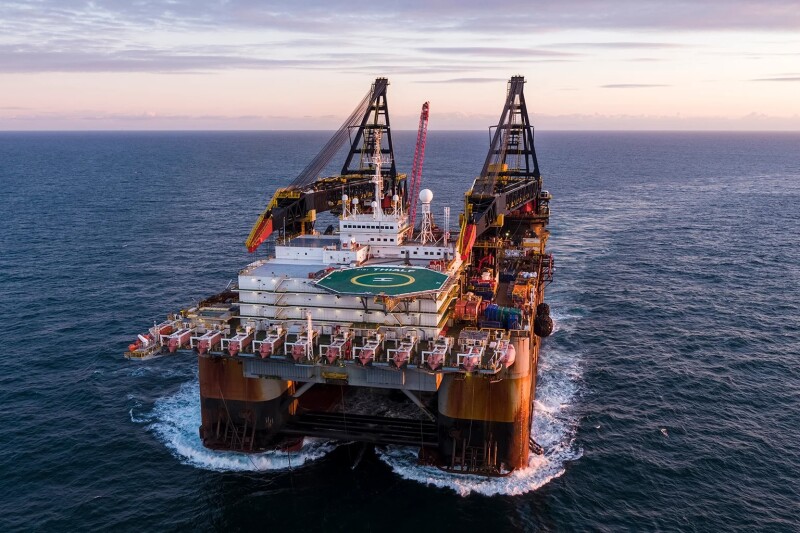Two weeks after the Trump administration abruptly allowed the Empire Wind project to resume, a coalition of project opponents and commercial fishermen filed a new federal lawsuit on June 3, calling for the Department of the Interior to block the project again.
Interior Secretary Doug Burgum – who imposed a stop-work order on Equinor’s project off New York on April 16, then lifted it in mid-May – is named among the defendants along with Equinor and the government of Norway, as a majority shareholder of the energy company.
“This project was pushed forward without the science, scrutiny, or stakeholder-input required by law,” said Robin Shaffer, president of the activist group Protect Our Coast NJ. “It places our ocean, our coastal economies, and our commercial fishing heritage in danger. Fishermen and environmentalists are united; this project must be stopped.”
Opponents of Empire Wind – one of the first earliest U.S. offshore wind projects in federal waters – were thrilled when Burgum issued his April 16 stop-work order, apparently making good on President Trump’s 2024 campaign pledge to stop wind power projects.
Those hopes were dashed suddenly in mid-May with news that Equinor could resume work, with New York State officials promising to work with the Interior Department on other energy projects, including new natural gas pipelines from Pennsylvania to New York.
The lawsuit is activists’ pushback, led by Protect Our Coast, New Jersey-based Clean Ocean Action, and ACK for Whales based on Nantucket, Mass., joined by 13 commercial fishing businesses from New Jersey to southern New England. In a joint statement, the plaintiffs say they have “concerns about environmental impact assessments, endangered species protections, essential fish habitat consultations, marine mammal authorizations, and potential effects on navigation, radar, and aviation safety.”
They also call for the federal Bureau of Ocean Energy Management to cancel Equinor’s Empire Wind lease for siting 54 turbines, contending “that it violates the Outer Continental Shelf Lands Act (OCSLA) due to Equinor’s majority ownership by the Kingdom of Norway.”
“New York’s increased electric rates will help fund a foreign government,” said Bruce Afran, an attorney who presented the case to the U.S. District Court in New Jersey. “OCSLA does not permit leases to entities controlled by foreign states.”
In his court complaint, Afran wrote that the Interior Department offered no legal rationale for the reversal.
One environmental group that did not support the Biden administration’s push for more offshore wind was Clean Ocean Action. The group played a role in ending ocean dumping in the New York Bight and lobbying against offshore drilling – but also staked out an early stand against what it saw as industrialization of the ocean with wind power development.
“For over 40 years, Clean Ocean Action has defended the ocean,” said Cindy Zipf, the group’s executive director. “In April, the Government Accountability Office report confirmed our claims—offshore wind development has been getting a pass with a fast-tracked, rubber-stamped approach. Clean Ocean Action fully supports this legal challenge to ensure the ocean is protected and laws are upheld.”







